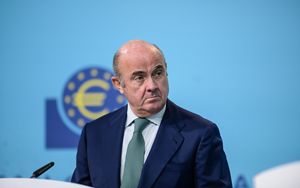(Finance) – “A series of unprecedented shocks over the past three years has pushed inflation well above target in the euro area and in much of the world. The Governing Council of the ECB has responded by substantially raising interest rates interest rate and has so far hiked policy rates by 400 basis points since July last year, the fastest tightening on record. our work is not done yet. L’Service inflation, and labor costs in particular, need to be closely monitoredas they are now a major driver of overall inflation,” he said Louis de GuindosVice-President of the European Central Bank (ECB), at an event at King’s College London.
The current environment of high inflation”it requires monetary and fiscal policy to work in the same direction – he explained – As energy prices fall and risks relating to energy supply decrease, it is important that government support measures relating to energy are withdrawn to prevent inflationary pressures from increasing in the medium term”.
de Guindos pointed out that the perspectives of inflation are surrounded by “a significant uncertainty” and therefore Frankfurt will continue to follow “a data-dependent approach to determining the appropriate level and duration of the restriction”.
According to the Vice President of the ECB, the cost of labor – an important component of prices in the service sector – is becoming a “driving factorof inflation. “Compensation per employee increased 5.2% year over year in the first quarter of 2023 and is expected to will continue to grow strongly in the coming months – he explained – At the same time, companies in some sectors (such as trade, transport, housing and food) have increased their profits, especially where demand has exceeded supply. Looking ahead, this could give firms room to absorb the impact of wage increases on prices as other input costs moderate.”
Anyway, the most of the impact of the tightening of the ECB “should materialize only in the course of this year and subsequently” and ECB staff estimates suggest that, “due to the tightening, inflation in 2022 was only half a percentage point lower than it would have been otherwise, while the downward impact is expected to be on average by two percentage points over the period 2023-25”.
